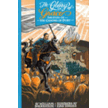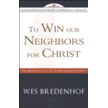The 400th Anniversary of the Canons of Dort: Introduction and Background, Part 1, by Randall Klynsma
The 400th Anniversary of the Canons of Dort: The Oppositions teaching, Part 2, by Randall Klynsma
Below are sermons on the Canons of Dort, preached by Rev. Cornelis (Neil) Pronk:
Eternal Decree of Election
Objections to Election Answered
The Decree of Reprobation
Recommended reading:
The 400th Anniversary of the Canons of Dort: The Oppositions teaching, Part 2, by Randall Klynsma
Below are sermons on the Canons of Dort, preached by Rev. Cornelis (Neil) Pronk:
Eternal Decree of Election
Objections to Election Answered
The Decree of Reprobation
Recommended reading:
 |
The Glory of Grace: The Story of the Canons of Dordt By William Boekestein / Reformation Heritage / Soli Deo Gloria Encourage kids to learn about the history and ideas that formed the Canons of Dort with The Glory of Grace. The Canons of Dort teach clearly that salvation is by grace alone through Christ alone, and is considered one of the more intimidating documents ever written. |
 |
To Win Our Neighbors for Christ: The Missiology of the Three Forms of Unity By Wes Bredenhof / Reformation Heritage Books In many modern histories of Christian missions, the Protestant Reformation of the sixteenth century is depicted as a movement lacking missionary zeal. It has virtually become a given that the Reformation was not oriented to the church's missionary task. In to win our neighbours for Christ, Wes Bredenhof answers these charges, proving that it is a mistake to say the Reformation and the confessional documents it produced have nothing to say about missions. Bredenhof demonstrates that the three forms of Unity - the Belgic Confession, the Heidelberg Catechism, and the Canons of Dort - properly understood, have much to offer the study of missions. More importantly, they encourage us to care about a world lost in unbelief, making us more mission oriented and outward looking. About the Series The Explorations in Reformed Confessional Theology series provides introductory volumes on statements in the Reformed confessions that tend to trouble modern readers. Each book examines confessional issues in four ways:
|